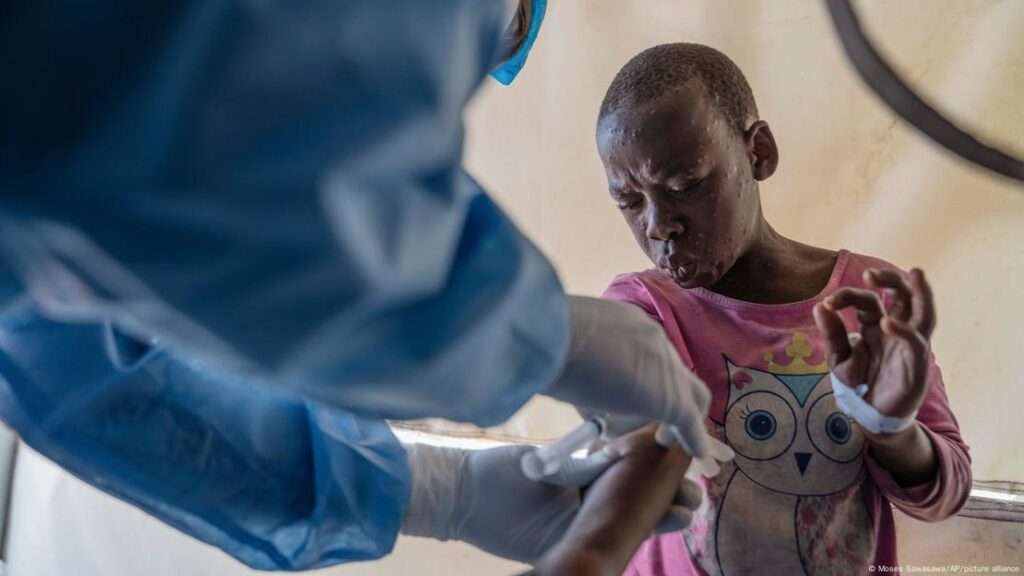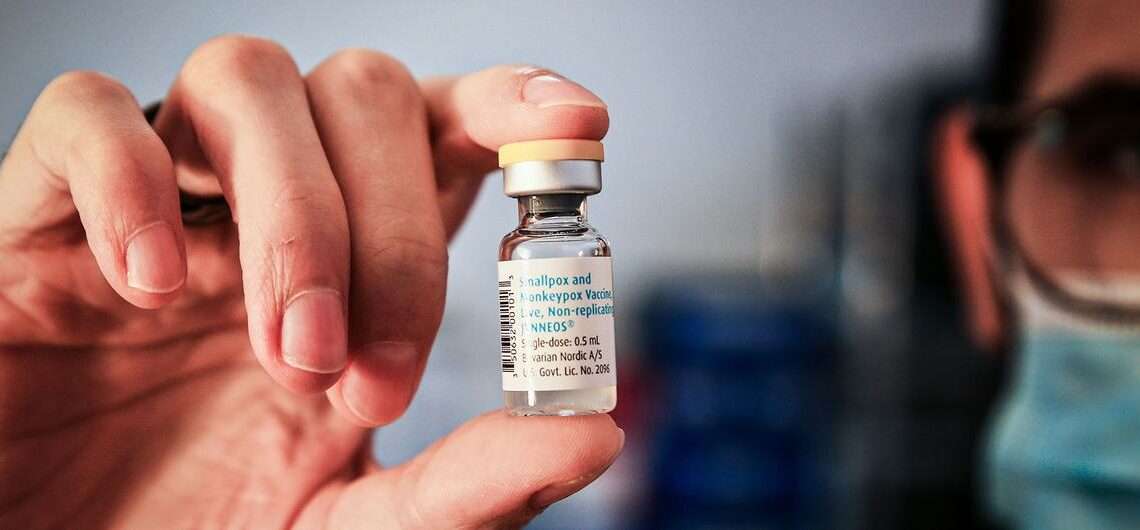In a significant move to curb the ongoing mpox outbreak, Germany announced that it would donate 100,000 doses of the mpox vaccine to the Democratic Republic of Congo (DRC) and other African countries. The donation is part of a broader effort to control the spread of the disease, which has recently seen a resurgence with a more lethal strain.
This generous contribution will nearly deplete Germany’s military reserve of vaccines, which currently holds around 118,000 doses. Alongside the vaccine donation, Berlin has pledged financial support to bolster the efforts of the World Health Organization (WHO) and partner organizations in Africa, working through the Gavi Vaccine Alliance.
Government spokesman Steffen Hebestreit emphasized Germany’s commitment to international solidarity, stating, “to support in solidarity the international efforts to contain mpox on the African continent.”
These measures are part of an immediate response, but Hebestreit also highlighted Germany’s longer-term goal of collaborating with the African Union (AU) to enhance local vaccine production capabilities.
Mpox Declared Global Emergency By WHO
The urgency of this situation was underscored earlier this month when the WHO declared the mpox outbreak in the DRC a global public health emergency. The Clade 1b strain of the virus, which is more deadly and transmissible, is believed to be behind the recent surge in cases.
This strain has already claimed over 570 lives this year and has spread to multiple countries, including Burundi, Kenya, Rwanda, and Uganda. The first European death linked to this outbreak was reported in Sweden.
Mpox, formerly known as monkeypox, has been present for decades, but this new strain has intensified the threat. The virus, which can be transmitted from animals to humans and between humans through close physical contact, has raised alarms globally.
In a separate development, the first 10,000 doses of mpox vaccines are expected to arrive in Africa this week. These vaccines, produced by Danish biotech company Bavarian Nordic, were donated by the United States but are destined for Nigeria rather than the DRC.
According to a source involved in the process, the delivery is the culmination of several years of negotiations between the U.S. and Nigerian governments.
Despite having reported 786 suspected cases this year without any fatalities, Nigeria remains a focal point for vaccination efforts.
Meanwhile, the U.S. Agency for International Development (USAID) has also committed to donating 50,000 doses to the DRC, although the exact arrival date is still pending.
Slow Response Criticized
Multiple public health officials and scientists have criticized the delayed delivery of vaccines to Africa. The WHO only began the formal process to provide poorer countries with large quantities of vaccines through international agencies in August, long after the outbreak had started.

This delay forced African governments and the African CDC to seek vaccine donations from wealthier nations.
While the WHO maintains that the outbreak “can be stopped,” it acknowledges that doing so will require a comprehensive and costly global effort. The situation has prompted other nations to step up; France recently announced a donation of 100,000 doses, and the U.S. has pledged an additional 50,000.
“The DRC has requested three million doses of vaccines,” said Ngashi Ngongo, chief of staff for the Africa Center for Disease Control and Prevention (Africa CDC). “All 12 affected countries lack any vaccines. We urgently need international partners to support these countries.”
Ngongo highlighted the financial burden that many African countries face in obtaining vaccines. European nations pay around €200 ($223) per dose, a cost that is expensive for most African countries.
The DRC, for example, would need approximately $300 million to secure enough vaccines for three million people. The DRC has negotiated with the European Commission’s Health Emergency Preparedness and Response Authority (HERA) to reduce the cost to about €140 per dose.
Ngongo is advocating for sustained international solidarity, but lessons from the COVID-19 pandemic suggest that such support can be fragile, especially if donor countries prioritize their own populations.
READ ALSO: Government Sued over SML Deal for GH₵1 Billion Payment



















